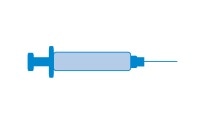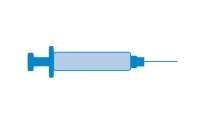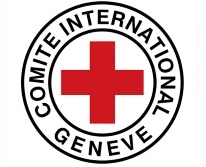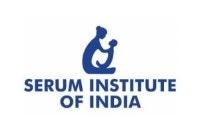The COVID-19 pandemic has brought vividly both the unique and transformational promise vaccines hold in ending pandemics and enabling societies to function, as well as the massive, systemic inequities that hinder that promise. It has also shown us that the mere existence of vaccines is insufficient without efforts to ensure that systems to supply, deliver, and communicate about vaccines are in place to ensure equitable access for all.
Well before the COVID-19 pandemic we were seeing evidence of waning vaccine acceptance in many countries, and many of those same dynamics are playing out with COVID-19 vaccines.
With vaccines as our most important tool to end this pandemic, we need a far better understanding of why individuals and communities make decisions to delay or forgo vaccinations, and how the information they receive from various platforms (social media, community leaders, etc.) impacts their confidence in vaccines."
Kaitlin Christenson, Vice President for Vaccine Acceptance and Demand at the Sabin Vaccine Institute
The year 2021 will see millions more people being able to access the COVID-19 vaccine, individual actions that will help protect all of us. But the more people that are vaccinated, the safer we all will be.
That is why we at the ICRC believe that all populations must have equitable access to the vaccine. That includes the more than 60 million people living in areas controlled by armed groups. That includes migrants who are on the move. And it includes people in places of detention. The more people who are vaccinated, the less of a chance we have of a significant mutation that again increases the risk for everyone."
International Committee of the Red Cross

Vaccine awareness is high in 2021 because of the Covid pandemic. The public and politicians have gotten a first hand look at the complexities involved in developing and licensing vaccines. It is a complex process and one that should be carefully messaged. The principal lesson for me was the importance of the connection between political leadership and scientific expertise.
Throughout 2020 there were regular disconnects in messaging that greatly complicated the public health response in the US and other countries. On the positive side the pandemic clearly showed the speed with which effective vaccines can be developed using novel methods."
F Marc LaForce, Director of Technical Services at Serum Institute of India
.jpg) Image Credit: Viacheslav Lopatin/Shutterstock.com
Image Credit: Viacheslav Lopatin/Shutterstock.com
What does the theme "Vaccines bring us closer" and global and equal access to vaccination mean to you?
With the rollout of COVID-19 vaccines, we are seeing the promise of health and wellbeing, and the potential to come back together as societies, on the horizon, and many have renewed hope about the future.
Despite this optimism, there are gross inequities in the distribution of COVID-19 vaccine supplies, with low- and middle-income countries receiving only a small fraction of the number of doses reserved for high-income countries. At a minimum, high-income countries should share their excess doses of vaccines.
Without equitable distribution, vulnerable populations around the world —including health workers on the frontline of COVID-19 care efforts—remain at risk, and the future of a world which comes back together remains in the distant future."
Kaitlin Christenson, Vice President for Vaccine Acceptance and Demand at the Sabin Vaccine Institute

The COVID-19 pandemic has brought into focus the inequities inherent in the global health system. Notably, many countries in conflict have very basic or even no health care available for all the families living there.
The world is rightly focused now on acquiring and distributing COVID-19 vaccines to help keep us all safe. But this is also a moment to realize and understand that what some people might consider routine immunizations simply aren’t available for others around the world.
At least 80 million children under age 1 are at risk of diseases with significant mortality such as measles, diphtheria and polio, per data from UNICEF. For populations in humanitarian settings, COVID is but one of many vulnerabilities and risks. Whilst a COVID vaccine is urgent, other vaccines are also most needed and must be provided."
International Committee of the Red Cross

There is little question that vaccines when considered as global products do “bring us closer”. The eradication of smallpox in the 1970s was a global effort that resulted in a huge public health success, a dangerous disease was eradicated. Invasive pathogens know no geographic boundaries and the control of infectious diseases must be viewed globally, not only for ethical reasons, but because it is the only was of surely dealing with these problems.
WHO has played a key role in ensuring that affordable quality vaccines are available globally. WHO along with partner organizations have worked with member countries to developed surveillance systems in order to recognize problems while ensuring that potent vaccines are available to better control those infections where effective vaccines are available.
This massive effort which is now over 50 years old has saved millions of lives and has transformed international public health by emphasizing the important roles played by all partners."
F Marc LaForce, Served as Director of the Meningitis Vaccine Project partnership between WHO and PATH
Immunization week 2021: Vaccines bring us closer to a healthier future
About Sabin Vaccine Institute
Our mission is to make vaccines more accessible, enable innovation and expand immunization across the globe.
We seek a future free from vaccine-preventable diseases.
We deliver sustainable, evidence-based solutions that extend the benefits of immunization to everyone, everywhere.
About International Committee of the Red Cross
 Established in 1863, the ICRC operates worldwide, helping people affected by conflict and armed violence and promoting the laws that protect victims of war. An independent and neutral organization, its mandate stems essentially from the Geneva Conventions of 1949. We are based in Geneva, Switzerland, and employ over 20,000 people in more than 100 countries. The ICRC is funded mainly by voluntary donations from governments and from National Red Cross and Red Crescent Societies.
Established in 1863, the ICRC operates worldwide, helping people affected by conflict and armed violence and promoting the laws that protect victims of war. An independent and neutral organization, its mandate stems essentially from the Geneva Conventions of 1949. We are based in Geneva, Switzerland, and employ over 20,000 people in more than 100 countries. The ICRC is funded mainly by voluntary donations from governments and from National Red Cross and Red Crescent Societies.
About Serum Institute of India

Serum Institute of India Pvt. Ltd. is now the world's largest vaccine manufacturer by number of doses produced and sold globally (more than 1.5 billion doses) which includes Polio vaccine as well as Diphtheria, Tetanus, Pertussis, Hib, BCG, r-Hepatitis B, Measles, Mumps and Rubella vaccines. It is estimated that about 65% of the children in the world receive at least one vaccine manufactured by Serum Institute. Vaccines manufactured by the Serum Institute are accredited by the World Health Organization, Geneva and are being used in around 170 countries across the globe in their national immunization programs, saving millions of lives throughout the world.